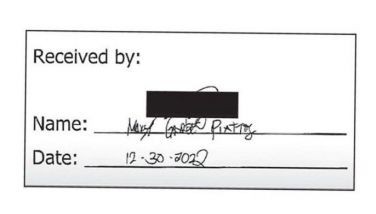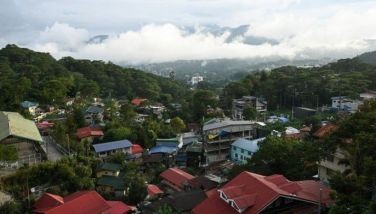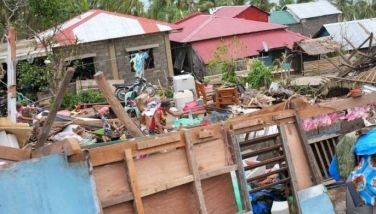ASEAN goes soft on China

In a draft statement, ASEAN foreign ministers said they tasked the ASEAN-China Senior Officials’ Consultation (ACSOC) mechanism to begin discussions on a substantive and effective COC on the basis of the framework as soon as possible. File
MANILA, Philippines - The Association of Southeast Asian Nations (ASEAN) is seen to take a softer stand on China’s aggressive moves in disputed waters and to highlight instead the conclusion of negotiations on a framework of the Code of Conduct of Parties in the South China Sea (COC).
The latest talks on the COC were held on May 18 in Guiyang, China.
In a draft statement, ASEAN foreign ministers said they tasked the ASEAN-China Senior Officials’ Consultation (ACSOC) mechanism to begin discussions on a substantive and effective COC on the basis of the framework as soon as possible.
ASEAN and China are set to endorse a framework for a COC that will regulate the future behavior of the parties concerned during the meeting in Manila this week. The framework will be endorsed for eventual crafting of a COC.
The Department of Foreign Affairs (DFA) said the framework, completed ahead of the mid-2017 goal set by the leaders of ASEAN and China, contains elements which the parties have agreed to.
But the draft does not call for a legally binding COC, as some ASEAN countries had wanted.
Pending conclusion of a substantive COC, the ministers reaffirmed the importance of maintaining peace, stability, security and freedom of navigation and overflight in and above the South China Sea.
“In this regard, we underscored the importance of the full and effective implementation of the DOC (Declaration on the Conduct of Parties in the South China Sea) in its entirety,” the draft communiqué said.
“Taking note of concerns expressed by some ministers over recent developments in the area, we reaffirmed the importance of enhancing mutual trust and confidence, exercising self-restraint in the conduct of activities, pursuing mutually agreed practical maritime areas of cooperation, and avoiding unilateral actions in disputed features that may further complicate the situation in keeping with the principle of peaceful resolution of disputes without resorting to the threat or use of force,” the draft statement said.
The draft communiqué did not mention the July 12, 2016 arbitral ruling in favor of the Philippines.
‘Philippines should seek enforcement of arbitral award’
But Supreme Court Associate Justice Antonio Carpio said the Philippines should seek enforcement of the arbitration ruling against China on disputed territories in the West Philippine Sea.
Carpio said this after warning that a joint venture with China on the disputed islands would violate the Constitution.
Carpio said the Duterte administration should instead push for its territorial rights stemming from the government’s victory before the Permanent Court of Arbitration (PCA).
He raised suggestions as the country is set to host next week the ASEAN foreign ministers for the framework of the COC for claimants in the maritime row.
Among the options for the government, according to Carpio, is to initiate an agreement among all ASEAN members with territorial claims in the South China Sea like Vietnam, Malaysia, Brunei and Indonesia to declare that no geologic feature in the Spratly Islands generates an exclusive economic zone (EEZ) that could overlap among countries as ruled by the PCA.
He also suggested that the Philippines enter into sea boundary agreements with Vietnam and Malaysia on overlapping EEZ on the extended continental shelf claim in the Spratlys.
Carpio explained such agreements would implement part of the arbitral ruling that no geologic feature in the Spratly Islands generates an EEZ.
“Even if only the Philippines, Vietnam and Malaysia will agree to this declaration, it will clearly remove any maritime delimitation dispute among them leaving, only the territorial disputes,” the magistrate said in an interview.
He explained that such declarations would also isolate China as the only state claiming an EEZ from geologic features in the Spratly islands.
The SC justice said another option would be to file before the United Nations Commission on the Limits of the Continental Shelf an extended continental shelf (ECS) claim beyond the country’s 200-nautical mile EEZ in the West Philippine Sea off the coast of Luzon.
Carpio believes that the UN body would likely award the ECS claim to the Philippines since China would not participate in the process and oppose it. This would be similar to the Philippines’ ECS claim in Benham Rise, which was unopposed.
“If China opposes our ECS claim, China would have a dilemma on what ground to invoke,” he stressed, adding that China cannot invoke its nine-dash line claim over the South China Sea as the CLCS is bound by the PCA ruling under the United Nations Convention on the Law of the Sea (UNCLOS).
Carpio reiterated that the Philippines can file a new case before the UNCLOS tribunal if China starts reclamation activities in Panatag (Scarborough) Shoal as this would destroy the traditional fishing ground of Filipino, Vietnamese and Chinese fishermen.
Carpio earlier criticized the policy of the Duterte administration on the territorial dispute with China in the West Philippine Sea for “setting aside” the PCA award won by the legal team, of which he was part.
He said the policy is “without discernible direction coherence of vision” and “relies more on improvisation than on long-term strategy.”
But the SC justice clarified the blame does not fall on the Department of Foreign Affairs (DFA), because it is Duterte who is the chief architect of the country’s foreign policy.
DFA spokesman Robespierre Bolivar earlier said the PCA ruling might not be mentioned in the framework to be approved by the ASEAN foreign ministers.
The official said the framework would be “generic” and would only outline the nature of the code of conduct for parties in the dispute.
- Latest
- Trending




























